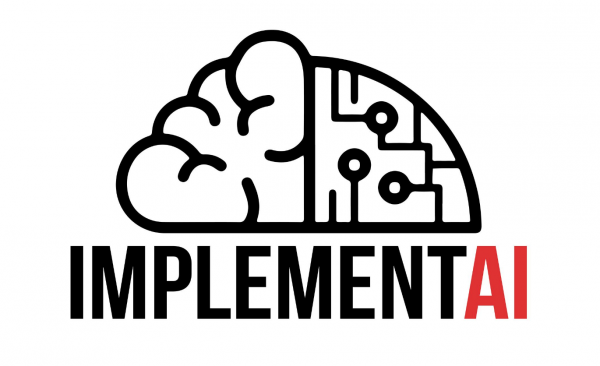Imagine an app that can guide the visually-impaired, a program that can analyze the nutritional content of the food on your dinner plate, or software that can detect violent encounters as they’re captured on security cameras. These ideas were all implemented during ImplementAI, a 24-hour hackathon which took place from Sept. 29-30 at the Catallaxy office in Montreal.
ImplementAI was held by the McGill Artificial Intelligence (AI) Society, a student-run organization that strives to make space for students to discuss and learn about the AI industry. This was the programming competition’s second year, following its successful inaugural event in 2017. The hackathon was open to students of all education levels and drew a diverse group of competitors from CEGEP, undergraduate, masters, and PhD programs.
“We’re really focused on diversity and inclusivity, both in terms of our participants as well as the different areas of AI,” Jenny Long, vice-president events of the McGill AI Society said. “This is an opportunity to give participants more resources to realize their ideas. We also want everyone to have a really fun weekend.”
The McGill AI executive team fostered a collaborative atmosphere at the hackathon and lauded the benefits of examining problems from multiple perspectives.
“We’re trying to build a community where anyone from any background […] can come together and demystify AI,” John Wu, co-president of the McGill Artificial Intelligence Society said. “The buzz is there for a reason. It’s because it’s technology that’s up and coming and can solve a lot of problems. But you also have to be careful, because right now there’s a lot of backlash toward the AI industry. By bringing people together, you can avoid some mistakes because you’re working together.”
The event began with opening remarks followed by a brainstorming session that gave teams the opportunity to share project ideas. Teams began their projects at 11:30 a.m. on Saturday and continued for the next 24 hours, with many participants working through the night. The first day also featured workshops by Automat and Coveo, two technology companies that sponsored the event.
The open-concept office where the hackathon took place evoked a modern tech start-up, with an abundance of free food, tea, and coffee readily available. The programmers huddled around tables and in conference rooms; flurries of typing and troubleshooting peaked in the moments leading up to the deadline for project submissions.
While each team dedicated an impressive amount of time and energy to their projects, one project stood out to the judges. The winning team ‘@ention’ (pronounced ‘attention’) developed a program able to detect violent encounters from video footage by analyzing the movements of each individual.
The team members, Meko Deng, Tharsan Ponnampalam, Edward Tran, and Tristan Toupin, attributed their success to their complementary areas of knowledge and their drive to see the project through to the end.
“Before we came, we all had our own ideas,” Deng said. “So we agreed to present our ideas once we got to the hackathon so we’d be fast. I think that really sped up our time, so we were able to get down to business relatively quickly.”
Even with the first place under their belts, the team was humble in their responses and focused on the reward of the process itself.
“There is definitely potential in what we built, but, on my part, what I’m going to take away is really what I learned,” Toupin said. “We were able to apply some of the things we already knew, but we spent a lot of time learning new things. And the point of these events is to complement your skills.”
The McGill AI Society emphasized the importance of having fun throughout the competition and expressed hopes to expand the hackathon in the future.






